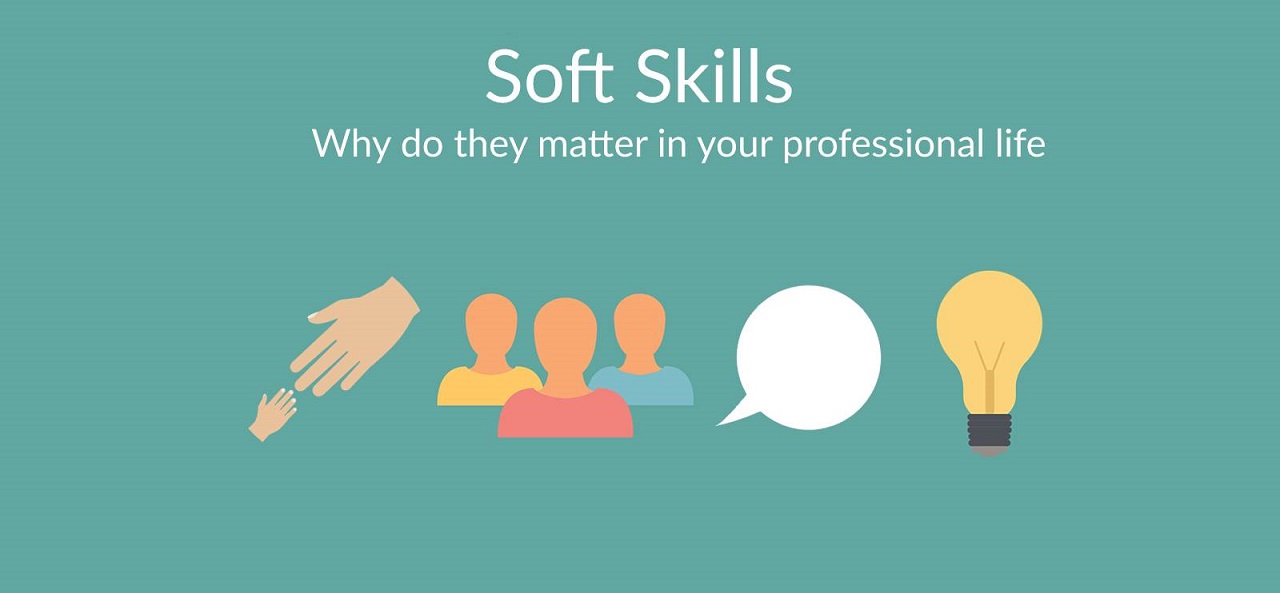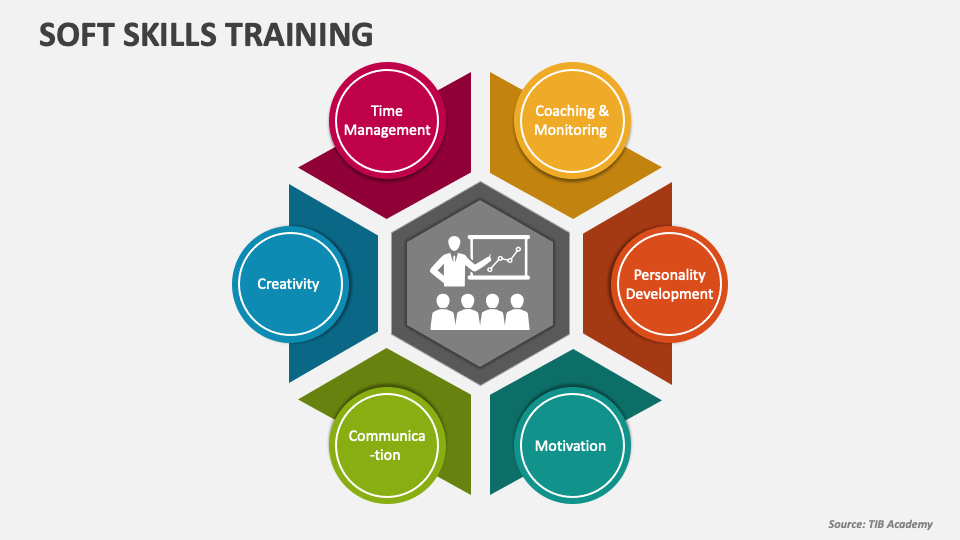Soft Skills Development

In an ever-evolving professional landscape, where technical expertise and hard skills are often emphasized, the importance of soft skills can be underestimated. Yet, these skills – encompassing aspects like effective communication, teamwork, adaptability, and emotional intelligence – play a pivotal role in shaping successful careers and fostering meaningful personal interactions. Soft skills are the unsung heroes of the workplace, the subtle yet powerful drivers of effective collaboration, problem-solving, and leadership.
This article delves into the world of soft skills: what they are, why they matter, and how you can develop them to enhance both your personal and professional life. In a marketplace where technical abilities may get your foot in the door, it’s often your soft skills that can secure you a seat at the table. From honing your communication prowess to mastering the art of emotional intelligence, we will guide you through practical steps and strategies to develop and refine these essential skills.
Soft skills are not just about being personable or a good team player; they are about navigating the complexities of interpersonal dynamics, adapting to change, making informed decisions, and leading with empathy and insight. Whether you’re a fresh graduate embarking on your career, a seasoned professional aiming to climb the corporate ladder, or simply someone looking to improve their interpersonal skills, understanding and developing your soft skills can make a significant difference. Let’s embark on this journey to unlock the full potential of your soft skills, transforming the way you work, lead, and interact.

Understanding Soft Skills
In a world where technical proficiency is highly valued, soft skills often emerge as the unsung heroes of personal and professional success. To navigate the complexities of modern workplaces and relationships, understanding and cultivating these skills is essential. Let’s delve into what soft skills are and why they are so crucial.
What Are Soft Skills?
Soft skills, often referred to as interpersonal skills or emotional intelligence, encompass a wide range of non-technical abilities that relate to how you work and interact with others. Unlike hard skills, which are about your technical ability to perform specific tasks, soft skills are more about your personal attributes and personality traits. They include, but are not limited to:
- Communication Skills: The ability to express ideas clearly and effectively in both verbal and written forms.
- Teamwork and Collaboration: Working effectively with others to achieve a common goal.
- Problem-Solving: The ability to identify issues and develop effective solutions.
- Adaptability and Flexibility: Being able to adjust to new conditions and embrace change.
- Emotional Intelligence: Understanding and managing your emotions, as well as recognizing and influencing the emotions of others.
- Time Management: Effectively managing your time to fulfill responsibilities and meet deadlines.
Why Do Soft Skills Matter?
- Complement Hard Skills: While technical abilities are necessary to perform specific job functions, soft skills enhance these abilities, allowing for more efficient and effective work performance.
- Career Advancement: In many industries, soft skills are crucial for career progression. Strong leadership, teamwork, and communication are often what set apart high-performing individuals and leaders.
- Adaptability in a Changing Workplace: As the workplace continues to evolve, particularly with the increase in remote work and digital communication, soft skills like adaptability, communication, and emotional intelligence become more vital.
- Building Relationships: Whether it’s with colleagues, clients, or customers, soft skills play a key role in forming and maintaining positive relationships.
- Problem-Solving in Complex Situations: Many modern workplace challenges are complex and multifaceted, requiring a blend of technical expertise and soft skills to navigate and resolve.
Understanding soft skills is the first step in recognizing their value and impact on your career and personal life. As we move forward, we will explore how you can identify and develop these crucial skills, setting the stage for enhanced personal growth and professional success.
Identifying Your Soft Skills
Recognizing and understanding your own soft skills is a critical step in personal and professional development. It’s about self-awareness — knowing your strengths, weaknesses, and the areas where you can improve. Here’s how to effectively identify your soft skills:
Self-Assessment
Start by reflecting on your past experiences. Think about moments when you successfully navigated a difficult situation, worked well in a team, or managed to adapt to unexpected changes. What skills did you use? Create a list of soft skills you believe you possess. This could include skills like communication, leadership, problem-solving, or adaptability. Consider instances in your professional or personal life where these skills were evident. How did these skills impact the outcomes?
Feedback from Others
Sometimes, it’s difficult to assess ourselves objectively. Asking for feedback from colleagues, friends, or mentors can provide valuable insights. In a professional setting, a 360-degree feedback process, where you receive anonymous feedback from your peers, supervisors, and subordinates, can be particularly enlightening. The way others perceive your soft skills may differ from your self-assessment. Understanding this gap is important for personal development.
Recognizing Areas for Improvement
Be honest with yourself about the areas where your soft skills need improvement. It could be communication, time management, or emotional intelligence. Once you’ve identified these areas, look for opportunities to practice and improve. This could be through new projects, training, or even day-to-day interactions.
Utilizing Assessments and Tools
Tools like the Myers-Briggs Type Indicator (MBTI) or the Big Five personality traits model can provide insights into aspects of your personality that align with certain soft skills. There are numerous online tools and surveys designed to help you assess your soft skills. These can provide a structured way to evaluate and understand your skills.
Identifying your soft skills is a journey of self-discovery. It requires openness, honesty, and a willingness to receive and act on feedback. By understanding your current skill set, you can set the stage for targeted development, enhancing your ability to navigate both professional and personal landscapes more effectively.

Developing Key Soft Skills
Once you’ve identified your soft skills, the next step is to actively develop them. Improvement in these areas can lead to better job performance, more effective communication, and stronger relationships both in and out of the workplace. Let’s explore strategies for developing some key soft skills.
Communication Skills
- Active Listening
- Clarity and Conciseness
- Non-Verbal Communication
- Feedback
Teamwork and Collaboration
Recognize the strengths and weaknesses of team members, including yourself, and learn how to complement each other. Develop skills in resolving conflicts by addressing issues directly and constructively, aiming for solutions that benefit all parties. Build a reputation as someone who can be relied upon by consistently meeting commitments and deadlines.
Problem-Solving Skills
Cultivate the ability to assess problems logically and systematically. Encourage creative thinking by exploring multiple solutions and thinking outside the box. Improve decision-making skills by gathering necessary information, considering various options, and weighing the potential outcomes.
Time Management
- Prioritization;
- Organization;
- Avoiding Procrastination.
Developing soft skills is an ongoing process that requires practice and commitment.
Integrating Soft Skills in the Workplace
Having developed your soft skills, the next crucial step is effectively integrating them into your daily professional life. The application of these skills in the workplace can significantly enhance teamwork, productivity, and leadership. Here’s how to seamlessly weave your soft skills into various aspects of your work environment.
Application in Daily Work
Use your enhanced communication skills in daily interactions. Whether it’s writing emails, participating in meetings, or giving presentations, clear and concise communication can greatly improve understanding and efficiency. Apply teamwork skills by actively contributing to group projects, showing willingness to listen to others’ ideas, and offering support where needed. Utilize your problem-solving abilities to tackle work challenges. Approach problems methodically, consider multiple solutions, and involve relevant stakeholders in the decision-making proces.
Soft Skills in Leadership
If you are in a leadership role, empathy and emotional intelligence are crucial. Understand and address the needs and concerns of your team members, creating a supportive and motivating work environment. Being adaptable as a leader means being open to new ideas, flexible in your approach, and able to handle change with composure. Demonstrate soft skills like time management, effective communication, and teamwork in your behavior. Leaders who practice what they preach inspire similar behaviors in their team.
Building a Positive Work Environment
Foster an environment where team members feel comfortable sharing ideas and feedback. This can lead to increased creativity and innovation. Use your soft skills to mediate conflicts in the workplace. Approach conflicts as opportunities for growth and learning, rather than battles to be won. Advocate for a healthy work-life balance. Recognize that respecting personal time contributes to overall job satisfaction and performance.
Conclusion
The journey of developing and integrating soft skills into the workplace is both challenging and rewarding. It goes beyond merely acquiring a set of skills; it’s about fostering a mindset of growth, empathy, and adaptability that resonates through every aspect of your professional life. In a world that’s rapidly evolving and increasingly automated, these human-centric skills become the differentiators that can propel your career forward and enrich your personal interactions.
Remember, the development of soft skills is a continuous process. It requires self-awareness, dedication, and the willingness to step out of your comfort zone. The effort put into honing these skills pays dividends in the form of stronger relationships, increased productivity, and a more fulfilling career.
So, as you move forward, embrace the challenges and opportunities that come with developing your soft skills. They are the keys to unlocking your full potential, not just as a professional but as a well-rounded, empathetic, and adaptable individual. Here’s to your continued growth and success in the ever-evolving landscape of the modern workplace!
